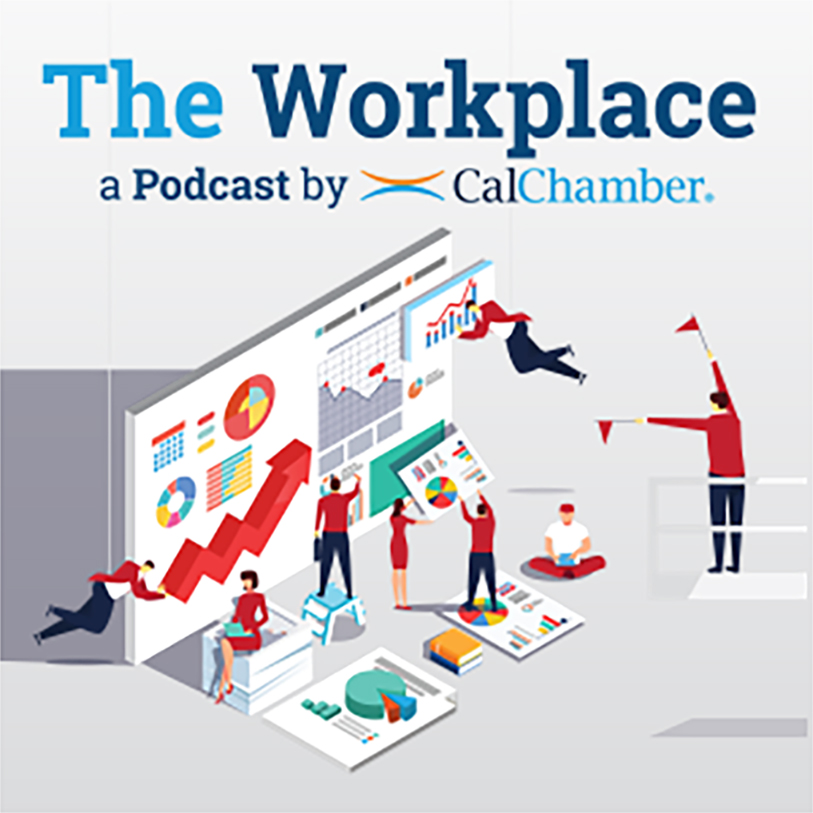The COVID-19 pandemic has created many hardships for employers and employees this year, and in this episode of The Workplace podcast, CalChamber Executive Vice President and General Counsel Erika Frank and employment law expert Jennifer Shaw discuss how annual performance reviews can elevate company morale and enhance the relationship between employers and employees.
Because this year has been so different for most businesses, should employers ditch their end-of-year performance review altogether and start fresh in 2021, Frank asks Shaw.
Shaw responds that even though employers are feeling overwhelmed and may be tempted to skip performance reviews this year, she counsels against it. Feedback is very valuable to employees, and employers may sometimes forget just how much their employees appreciate it.
If an employer has already been doing annual reviews, they should continue to do them this year. And if an employer was not previously doing them, this year presents a great opportunity to recognize employees for their hard work and outline what the company’s expectations are in the coming year, Shaw explains.
A Shift in Performance Reviews
Performance reviews typically rely on metrics and goals for evaluating an employee’s performance, but this year, many of those metrics and goals have simply been unattainable, Frank tells listeners. Employers should focus on recognizing the hard work and life balances that employees have had to do. For example, an employer may tell an employee, “Maybe you didn’t hit the goal of selling X amount of widgets, but look at what you did while at home, while having your kids at the dinner table,” Frank says.
Employees have had to make hard adjustments. They used to be able to collaborate in person or go down the hall to talk to coworkers about a project. Now, they have had to adapt to talking over the phone or “zooming.” But many people don’t like to be in front of a camera or see how Zoom portrays them, Frank points out. These are things that employers should consider when drafting their annual reviews.
Shaw agrees. Most employees, she says, have put their pedal to the metal, and have risen to the occasion. This is why it’s so important to thank employees for their commitment one-on-one and not in a general group setting.
Employees will appreciate that their leader takes time out of their day to sit with them for 30 minutes to say they recognize that “this wasn’t easy for you,” Shaw says.
Compensation
Because performance reviews are usually tied to compensation, some employers may think about skipping them this year out of fear of giving employees a poor performance review that could impact the employee’s ability to earn more money the next year, Frank says. But just as employers learned to pivot their businesses this year, so too can they pivot when it comes to annual performance reviews.
Shaw adds that it’s not really fair to hold employees to the same standards and metrics of pre-COVID-19.
“We have got to look at the big picture, here,” she says.
On the other hand, some employers may think that they can’t give positive feedback because they cannot afford to give employees raises, Shaw points out.
“But it’s not all about money,” she tells podcast listeners.
Feedback coming directly from company leaders is priceless. This is a ripe opportunity to enhance the bond that employers have with their employees, Shaw stresses.
Moreover, employers should take the time to set achievable goals for the next year. A vaccine is coming, so there will be changes next year, she explains. Employers should not pile on the negativity — rather they should utilize this opportunity to commend their employees and tell them that they are going to get through this together.
CalChamber members can use the Performance Evaluation to record an evaluation of an employee’s performance over a certain period of time. Not a member? See how CalChamber can help you.





